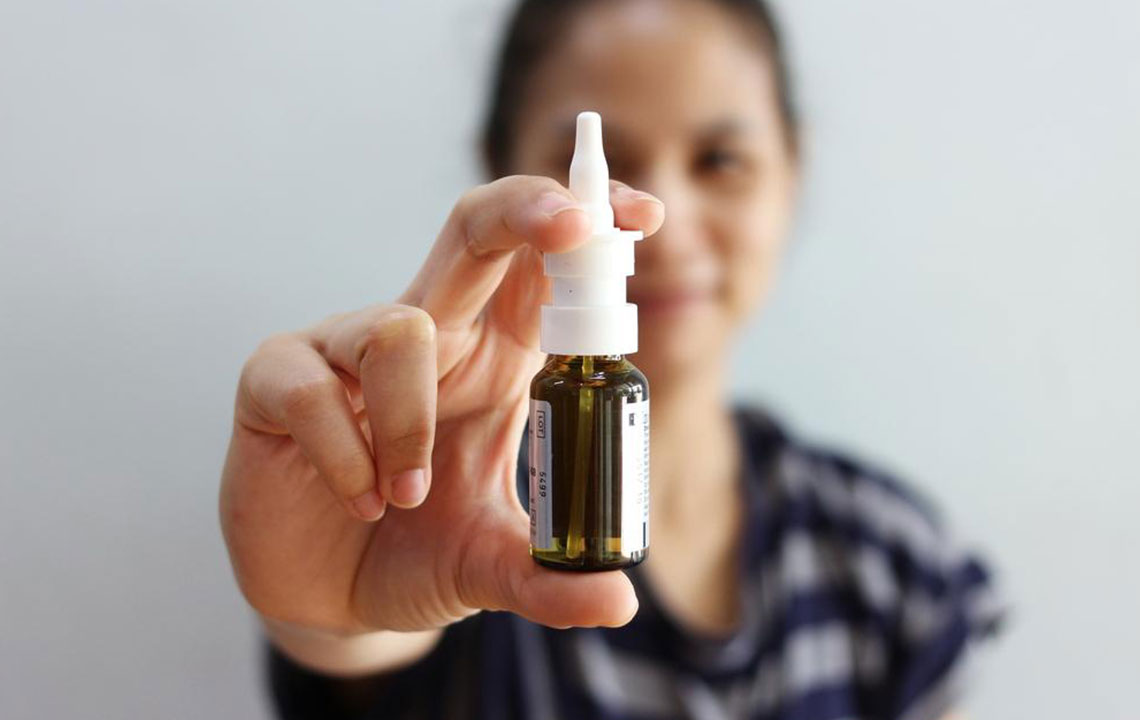Comprehensive Guide to Relieving Nasal Congestion Naturally and Effectively
This comprehensive guide explores effective methods to relieve nasal congestion naturally and medically. It covers OTC medications, home remedies, preventive tips, and when to seek medical help. Maintaining nasal health through proper care and lifestyle changes can improve breathing comfort and reduce persistent symptoms, making daily life more manageable during episodes of nasal congestion.

Comprehensive Guide to Relieving Nasal Congestion Naturally and Effectively
Nasal congestion, commonly known as a stuffy nose, is a prevalent condition that affects millions of individuals worldwide. It occurs when the nasal passages become swollen due to excess fluids, often triggered by infections such as colds or flu, or allergic reactions like hay fever. Understanding the root causes and exploring effective treatment strategies can significantly improve quality of life and comfort during times of nasal discomfort.
Fundamentally, nasal congestion results from the body's immune response to irritants, pathogens, or allergens. When the immune system detects an intrusion such as a virus, bacteria, or allergen, it triggers an inflammatory response. This response increases blood flow to the affected area and promotes mucus production, aiming to trap and eliminate the offending agents. Unfortunately, this process leads to swelling of the nasal passages, narrowing the airways and creating a sensation of blockage or congestion.
Symptoms associated with nasal congestion extend beyond the feeling of a blocked nose. They may include nasal discharge, sneezing, post-nasal drip, pressure around the cheeks and forehead, headaches, and a reduced sense of smell. These symptoms can interfere with daily activities, affect sleep quality, and result in discomfort if left unmanaged.
While occasional nasal congestion is common and often manageable, persistent or severe cases require a more comprehensive approach. Fortunately, there are a range of effective strategies—both medical and natural—that can help alleviate congestion and promote nasal health.
Over-the-Counter Medications for Quick Relief
For immediate relief, many patients turn to over-the-counter (OTC) remedies. Nasal sprays containing decongestants such as naphazoline, oxymetazoline, or pseudoephedrine can offer rapid alleviation of congestion. These medications work by constricting the blood vessels in the nasal passages, reducing swelling and making breathing easier. However, they should be used cautiously and only for short periods, typically not exceeding three consecutive days, to prevent rebound congestion.
Oral decongestants can also be effective, especially if nasal sprays are contraindicated. These medications help reduce overall nasal swelling but may cause side effects like increased blood pressure or restlessness, so consultation with a healthcare provider is advised, particularly for individuals with hypertension or heart conditions.
Natural Remedies and Home Treatments
Many individuals prefer natural approaches that are safe, cost-effective, and free from side effects. Home remedies can be highly effective at providing relief and speeding recovery. Some of the most popular methods include:
Steam Inhalation: Inhaling steam infused with eucalyptus, menthol, or tea tree oil can loosen mucus and soothe irritated nasal tissues. To do this, boil water, pour it into a bowl, and inhale the steam with a towel draped over the head to trap the vapors. This process not only alleviates congestion but also helps clear the sinuses.
Saline Nasal Sprays and Rinses: Using saline solutions to rinse the nasal passages helps flush out mucus, allergens, and irritants. Saltwater sprays are readily available or can be made at home by dissolving salt in sterile water. Regular rinsing can reduce nasal inflammation and improve airflow.
Stay Hydrated: Drinking plenty of warm fluids such as herbal teas, broths, and water helps thin mucus, making it easier to expel from the nasal passages. Proper hydration supports the immune system and accelerates recovery.
Warm Compresses: Applying warm compresses around the nose, cheeks, or forehead can relieve sinus pressure and promote drainage of mucus. This method provides comfort and alleviates pain caused by congestion.
Humidifiers: Using a humidifier in dry environments adds moisture to the air, preventing the nasal passages from becoming overly dry and irritated. Suitable especially during winter months or in air-conditioned rooms.
When to Seek Medical Attention
Although most cases of nasal congestion resolve within a week, sometimes symptoms persist or worsen. If congestion lasts longer than ten days, is accompanied by high fever, severe headache, facial pain, or swelling around the eyes, it is crucial to consult a healthcare professional. Such symptoms may indicate sinus infection or other underlying conditions requiring prescription medications or further investigation.
In some cases, nasal congestion can be a symptom of larger health issues such as nasal polyps, deviated nasal septum, or chronic sinusitis. Proper diagnosis and tailored treatment plans are essential for effective management.
Additionally, individuals with underlying health conditions, pregnant women, and young children should seek medical advice before starting any new treatment regimen to ensure safety and efficacy.
Preventive Measures to Avoid Nasal Congestion
Preventing nasal congestion involves proactive steps to minimize exposure to triggers and support nasal health. These include:
Avoid Allergens: Keep indoor environments clean, minimize exposure to dust mites, pet dander, mold, and pollen during high seasons.
Practice Good Hygiene: Wash hands frequently, avoid touching the face, and cover mouth and nose when coughing or sneezing to prevent infection spread.
Maintain a Healthy Lifestyle: Regular exercise, balanced diet rich in vitamins C and D, and adequate sleep bolster immune defenses.
Stay Hydrated and Use Humidifiers: As mentioned, maintaining moisture levels and hydration reduces nasal dryness and irritation.
Manage Allergies Effectively: Consult allergists for testing and develop personalized allergy management plans, possibly including medications or immunotherapy.
In conclusion, nasal congestion is a common yet manageable condition. Combining over-the-counter medications, home remedies, and preventive strategies can significantly reduce symptoms and enhance comfort. Recognizing when to seek medical attention ensures proper care and prevents complications. Emphasizing nasal health through lifestyle and environmental modifications contributes to overall respiratory wellness and quality of life.





